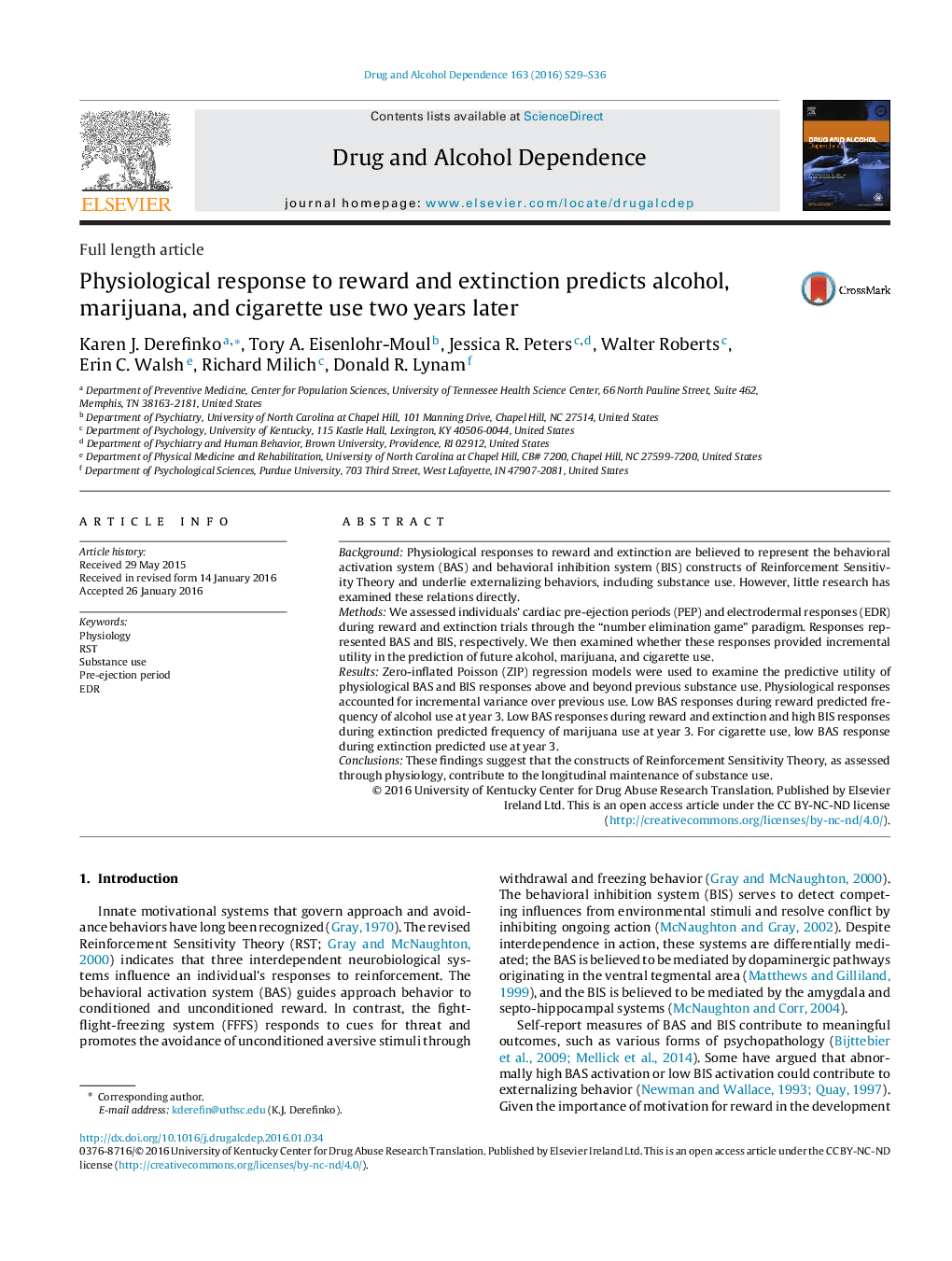| Article ID | Journal | Published Year | Pages | File Type |
|---|---|---|---|---|
| 1069691 | Drug and Alcohol Dependence | 2016 | 8 Pages |
•Physiological responses to reward may underlie motivation for externalizing behavior.•This work examined whether physiological responses predicted substance use.•Suppressed cardiac responses during reward and extinction predicted future substance use.•Suppressed responses may be indicative of a reward deficit syndrome that underlies substance use.
BackgroundPhysiological responses to reward and extinction are believed to represent the behavioral activation system (BAS) and behavioral inhibition system (BIS) constructs of Reinforcement Sensitivity Theory and underlie externalizing behaviors, including substance use. However, little research has examined these relations directly.MethodsWe assessed individuals’ cardiac pre-ejection periods (PEP) and electrodermal responses (EDR) during reward and extinction trials through the “number elimination game” paradigm. Responses represented BAS and BIS, respectively. We then examined whether these responses provided incremental utility in the prediction of future alcohol, marijuana, and cigarette use.ResultsZero-inflated Poisson (ZIP) regression models were used to examine the predictive utility of physiological BAS and BIS responses above and beyond previous substance use. Physiological responses accounted for incremental variance over previous use. Low BAS responses during reward predicted frequency of alcohol use at year 3. Low BAS responses during reward and extinction and high BIS responses during extinction predicted frequency of marijuana use at year 3. For cigarette use, low BAS response during extinction predicted use at year 3.ConclusionsThese findings suggest that the constructs of Reinforcement Sensitivity Theory, as assessed through physiology, contribute to the longitudinal maintenance of substance use.
